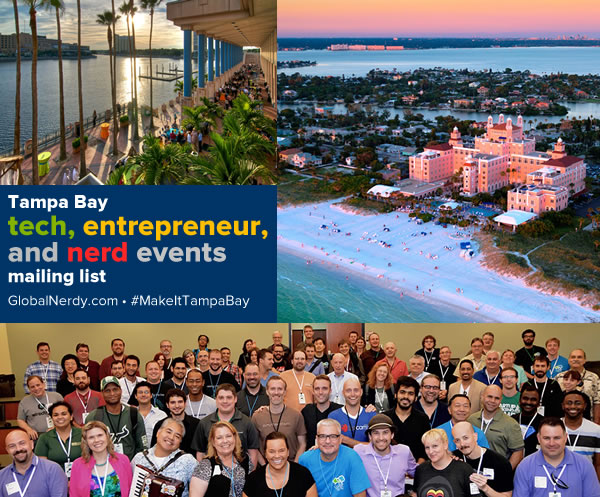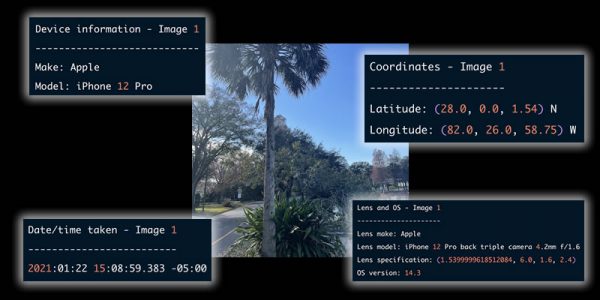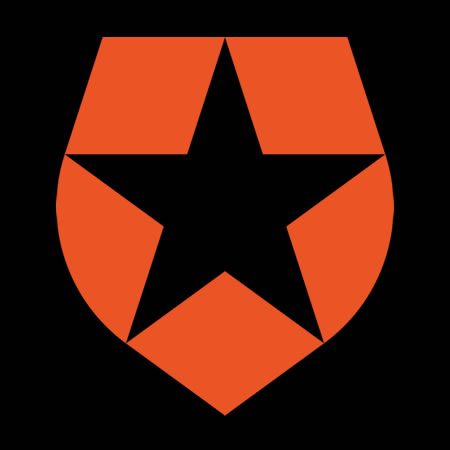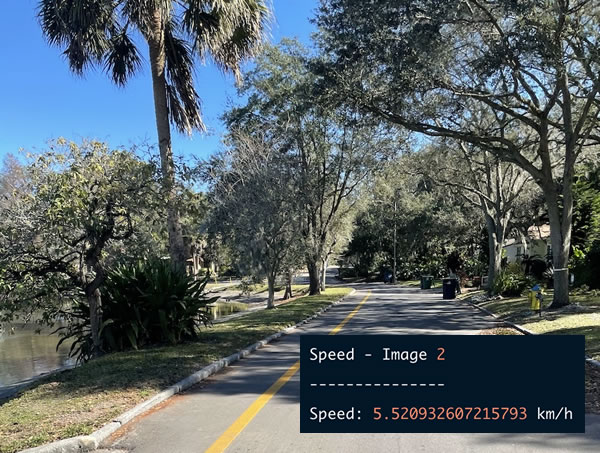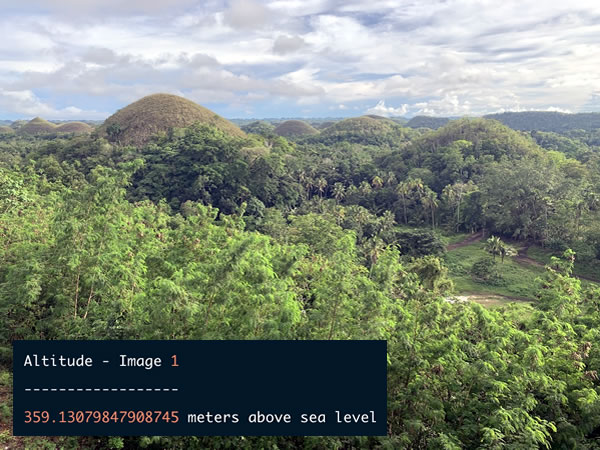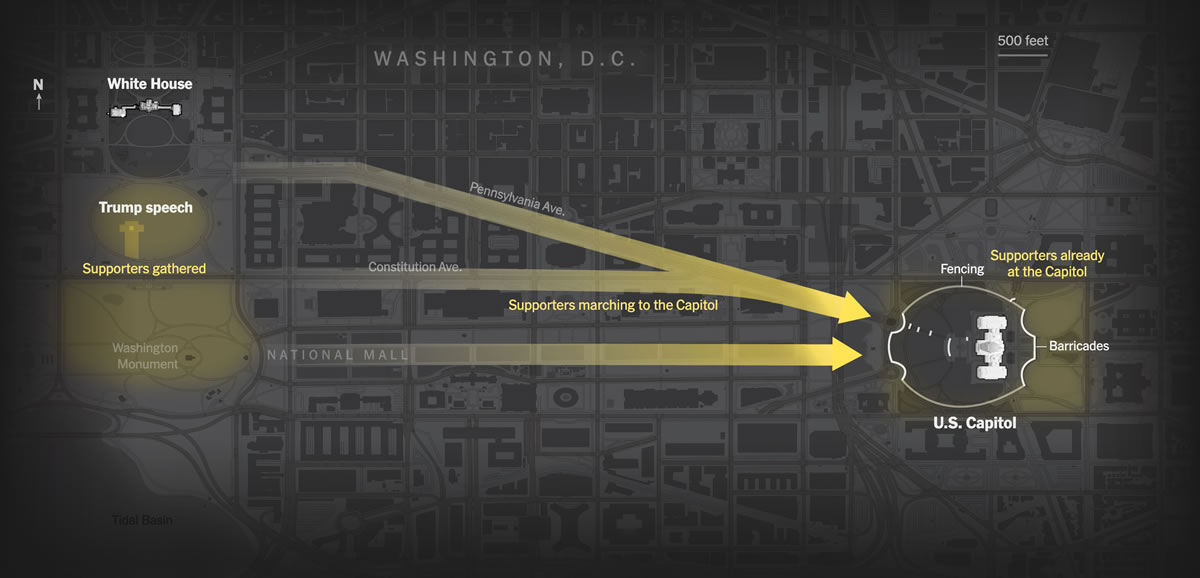Believe it or not, the end of this week is also the end of the month. Here’s your list of tech, entrepreneur, and nerd events for Tampa Bay and surrounding areas for the week of Monday, February 22 through Sunday, February 28, 2020.
This is a weekly service from Tampa Bay’s tech blog, Global Nerdy! For the past four years, I’ve been compiling a list of tech, entrepreneur, and nerd events happening in Tampa Bat and surrounding areas. There’s a lot going on in our scene here in “The Other Bay Area, on the Other West Coast”!
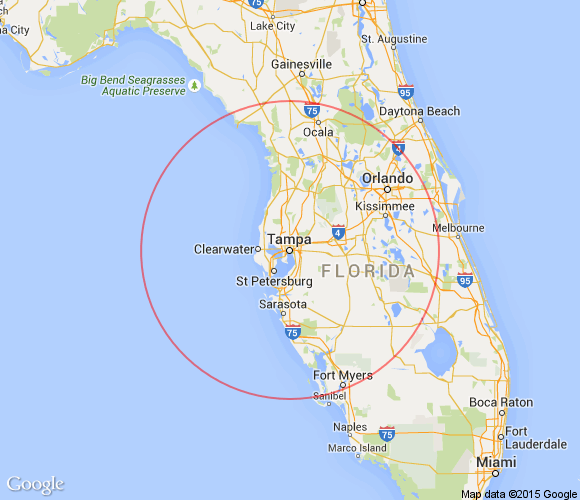 By “Tampa Bay and surrounding areas”, this list covers events that originate or are aimed at the area within 100 miles of the Port of Tampa. At the very least, that includes the cities of Tampa, St. Petersburg, and Clearwater, but as far north as Ocala, as far south as Fort Myers, and includes Orlando and its surrounding cities.
By “Tampa Bay and surrounding areas”, this list covers events that originate or are aimed at the area within 100 miles of the Port of Tampa. At the very least, that includes the cities of Tampa, St. Petersburg, and Clearwater, but as far north as Ocala, as far south as Fort Myers, and includes Orlando and its surrounding cities.
For the time being, I’m restricting this list to online events. We’re still deep in a pandemic, and the way out is to stop the spread, however we can. In the age of broadband internet, smartphones, and social media, it’s not that hard. Stay home, stay safe, stay connected, and #MakeItTampaBay!
Monday, February 22
- Tampa Bay Tech Career Advice Forum — Job Seeker Coffee Talk @ 9:00 AM to 10:00 AM EST
- Tampa Bay Connections — Virtual Networking Lunch Mon & Wed @ 11:30 AM to 1:00 PM EST
- Christian Professionals Network Tampa Bay — Live Online Networking- Monday @ 11:30 AM to 1:00 PM EST
- Entrepreneurs’ Empowerment Empire — Official Meeting-Boundaries @ 11:30 AM to 1:30 PM EST
- Wesley Chapel Young Entrepreneurs Meetup — Virtual Networking Lunch @ 11:30 AM to 1:00 PM EST
- Entrepreneurs & Business Owners of Sarasota & Bradenton — Virtual Professional Business Networking @ 11:30 AM to 1:00 PM EST
- Tampa Bay Investors & Traders — Stocktwits Meetups — Winning Wall Street’s Money with Stocks, Options, Futures, Forex, Crypto, etc @ 1:00 PM to 3:00 PM EST
- Tech Hub South Florida — Digital Infrastructure Integration @ 5:30 PM to 6:30 PM EST
- Toastmasters Division G — Radiant Ridge Toastmasters Club Club 5807 @ 6:00 PM to 7:30 PM EST
- Weekly Meeting of Tampa Toastmasters 1810 @ 6:30 PM to 8:00 PM EST
- Orlando Stoics — ONLINE: Our Lives, Our Dreams, Our Minds: What brings you inspiration? @ 7:00 PM to 8:30 PM EST
- Orlando Adventurer’s Guild — Curse of Strahd (Tier 2) @ 7:00 PM to 10:00 PM EST
- Nerdbrew Events — Anime Watch Party @ 7:00 PM to 10:00 PM EST
- Toastmasters District 48 — Beam Into Our Awe Inspiring Universe Monday’s for Intellectual Stimulation & Fun @ 7:00 PM to 8:15 PM EST
- Programmers of Portables — Let’s write a game (with Python and Pygame)! @ 7:00 PM to 9:00 PM EST
- Orlando Developers Meetup — ODevs Virtual Meetup – Goodbye Lambda, Hello Kubernetes! @ 7:00 PM to 9:00 PM EST
Tuesday, February 23
- Tampa Bay Connections — Business over Breakfast Tampa Bay @ 7:30 AM to 9:00 AM EST
- Pinellas/Pasco/Hillsborough/Polk/Manatee Business Meetups — Business over Breakfast Largo/Seminole Virtually @ 7:30 AM to 9:00 AM EST
- Professional Business Networking with RGAnetwork.net — Downtown St Pete Networking Virtually JOIN us @ 7:30 AM to 9:00 AM EST
- Professional Business Networking with RGAnetwork.net — Power Partner Breakfast Virtually! @ 7:30 AM to 9:00 AM EST
- Computer Coach Training Center — Successful Interviewing @ 10:00 AM to 11:30 AM EST
- CareerSource Tampa Bay — Career-Training Information Fair @ 10:00 AM to 2:00 PM EST
- USF Connect — Connecting with USF’s Research and Innovation Expertise @ 10:00 AM to 11:00 AM EST
- TampaBayJobLinks — Chat with a Career Coach @ 11:00 AM to 12:00 PM EST
- Toastmasters District 48 — Westshore Toastmasters @ 12:00 PM to 1:00 PM EST
- The Tampa Bay Women’s Business Centre — Ideas to Start a Fashion Business Online @ 12:00 PM to 1:00 PM EST
- Tampa Bay Investors & Traders — Stocktwits Meetups — Winning Wall Street’s Money with Stocks, Options, Futures, Forex, Crypto, etc @ 1:00 PM to 3:00 PM EST
- National Civic League — A Discussion with Nextdoor.com @ 2:00 PM to 3:00 PM EST
- Free Video Production Classes – TV/Internet — Social Video Marketing Tips(ONLINE CLASS)-FREE for Hillsborough County Residents @ 4:15 PM to 5:15 PM EST
- Qlik Meetup – Tampa — Qlik VIRTUAL Meetup | TAMPA @ 6:00 PM to 7:30 PM EST
- Orlando PHP Meetup | Odevs — Making Desktop GUIs with PHP by German Gamboa @ 6:00 PM to 7:30 PM EST
- UNCF North and Central Florida — UNCF Tampa Florida Virtual Scholarship Forum @ 6:30 PM to 8:30 PM EST
- LinkedIn Local North Tampa — VIRTUAL SPEED NETWORKING PLUS SUPPORTING A GREAT LOCAL CHARITY! @ 6:30 PM to 7:45 PM
- Central Florida Philosophy Meetup — Thomas Paine’s COMMON SENSE @ 7:00 PM to 7:50 PM EST
- The Tampa Girly Book Club — February’s Online Girly Book Club at 7:00pm @ 7:00 PM to 9:00 PM EST
- Orlando Adventurer’s Guild — Icewind Dale: Rime of the Frostmaiden – (Tier 1, APL 1) – DM Canon @ 7:00 PM to 11:00 PM EST
- Brandon Boardgamers — Board Gaming – ONLINE ONLY @ 7:00 PM to 9:00 PM EST
- Tampa Bay Blockchain Developers Meetup — [DEV WORKSHOP] Building smart contracts in a smarter, faster way. @ 7:00 PM to 9:00 PM EST
- The Orlando Python User Group — Beginner: TicTacToe from Basic to OOP @ 7:00 PM to 8:30 PM EST
- Shut Up & Write!® Tampa — Online Event: Shut Up & Write on Zoom @ 7:45 PM to 9:15 PM EST
- Nerdbrew Events — Tampa Board Games Online @ 8:00 PM to 10:00 PM EST
- Thinkful Tampa | Careers in Tech — Thinkful Webinar | Level Up Your Career With Thinkful @ 8:00 PM to 10:00 PM EST
Wednesday, February 24
- 1 Million Cups Orlando — The ValidIDe Project @ 9:00 AM EST
- 1 Million Cups St. Pete — The MAR St. Pete @ 9:00 AM EST
- 1 Million Cups Tampa — World Trade Center Tampa Bay / Grub Ads, Inc. @ 9:00 AM EST
- BOSSED Financial — Cof·fee Klatsch for Small Businesses (Virtual Networking) @ 9:00 AM to 11:00 AM EST
- North Tampa Networking Group — Business networking @ 9:00 AM to 10:00 AM EST
- Wesley Chapel Young Entrepreneurs Meetup — Virtual Networking Lunch @ 11:30 AM to 1:00 PM EST
- Tampa Bay Connections — Virtual Networking Lunch Mon & Wed @ 11:30 AM to 1:00 PM EST
- Success Strategies for Business Owners — Sales: The lifeblood of your business @ 12:00 PM to 1:00 PM EST
- Tampa Bay Agile — Heart of Agile Weekly Coffee Corner @ 12:30 PM to 1:45 PM EST
- Free Video Production Classes – TV/Internet — Digital Video Editing Class (ONLINE CLASS) -FREE for Hillsborough residents only @ 1:00 PM to 3:00 PM EST
- TampaBayNetworkers — Let’s Talk Business- Tampa Bay Virtual Meetings @ 2:20 PM to 3:50 PM EST
- ACES: Architects, Contractors, Engineers, & Site Developers — ACES: Architects, Contractors, Engineers, & Site Developers -State of the Market @ 4:00 PM to 5:00 PM EST
- Library Book Clubs – OCLS — Virtual Event: Tertulia Cuatro Gatos/Spanish Book Club @ 4:30 PM to 5:30 PM EST
- Wesley Chapel, Trinity, New Tampa Business Professionals — Virtual Speed Networking the Largest in the South All Welcome @ 5:00 PM to 7:00 PM EST
- Professional Business Networking with RGAnetwork.net — Virtual Speed Networking Wednesday 5pm to 7pm ~ BYOB Connect & Collaborate @ 5:00 PM to 7:00 PM EST
- FUJIFILM Talks — Tech Talks @ 5:00 PM to 5:30 PM
- Tampa Bay Women in Tech — February Meet Up – Marketing for Tech with Wendy Golding @ 5:30 PM to 6:30 PM EST
- Leadership Tampa Bay — Leadership Tampa Bay Informational Session @ 5:30 PM to 7:00 PM EST
- Orlando Adventurer’s Guild — Adventuring 331: Journies to the Beyond (Tier 3, APL 11) Historic Campaign @ 6:00 PM to 10:00 PM EST
- Suncoast Developers Guild — Whiteboard Challenges @ 6:30 PM to 8:30 PM EST
- Tampa Bay Inventors Council – www.TampaBayInventors.org — Tampa Bay Inventors Council – www.tbic.us Weekly Meetup @ 6:30 PM to 8:00 PM EST
- Tampa Writers Alliance — Tampa Writers Alliance Critique Group @ 6:30 PM to 8:30 PM EST
- Central Florida AD&D (1st ed.) Grognards Guild — New Beginnings & Old Rivalries @ 7:00 PM to 10:30 PM EST
- Tampa Hackerspace — 3D Printing Orientation: Models and Slicers @ 7:00 PM to 9:00 PM EST
- Toastmasters District 48 — Carrollwood Toastmasters Meetings now conducted Online using Zoom @ 7:00 PM to 8:30 PM EST
- MakerFX Makerspace — MakerFX Monthly Membership Meeting – VIRTUAL @ 7:00 PM to 8:30 PM EST
- Writers of Central Florida or Thereabouts — Orlando Word Lab @ 7:00 PM to 9:00 PM EST
- Nerdbrew Events — Sarah’s Arts Crafts and Bad TV Hangout Night @ 8:00 PM to 12:00 midnight EST
Thursday, February 25
- Hillsborough Community College — Design Thinking – Fall in love with the problem, not the solution @ 10:00 AM to 11:15 AM EST
- Tampa Bay Tech — Tech Vision 2021 Report @ 11:00 AM EST
- Altamonte Springs Business Strategy Meetup — Your Gateway to Growth Networking 2021 ON-LINE EVENT! @ 12:00 PM to 1:00 PM EST
- Avocado Labs – Online Talks — Why actively joining a developer community is essential @ 12:00 PM to 1:00 PM EST
- Auth0 — What does “remote-first” really mean? / Reverse engineering the Auth0 founding story @ 12:30 PM to 2:00 PM EST
- USF Muma College of Business — Conversation with a CEO: Brian Butler @ 12:00 to 1:00 PM EST
- All Tech is Human — Improving Social Media: Misinformation & Free Expression @ 1:00 PM to 1:45 PM EST
- Divi Tampa — Divi Tampa Fab February 2021 @ 1:00 PM to 2:30 PM EST
- Microsoft Tech Talks – Florida — MTT | Power Platform Application Lifecycle Management (ALM) @ 1:00 PM to 2:30 PM EST
- StartUp Xchange — Product Discovery Coffee Chat/Monthly Video Conference @ 2:30 PM to 4:00 PM EST
- Tampa Bay Coalition of Reason — xpost Meetup Live: Debunking the Myths: Black History and Culture @ 5:00 PM to 6:00 PM EST
- Tampa Bay AWS User Group — Proactive Programming using AWS Services – PJ Hagerty, Developer Advocate @ 6:00 PM to 8:00 PM EST
- Library Book Clubs – OCLS — Virtual Event: Winter Garden Book Club @ 6:00 PM to 7:00 PM EST
- NIPCA — Black Can Tech: Excelling in the Tech Ecosystem @ 6:00 PM EST
- Orlando Adventurer’s Guild — DDAL-EB-03 Where the Dead Wait – An Eberron Oracle of War campaign adventure @ 6:30 PM to 9:30 PM EST
- Tampa Writers Alliance — Tampa Writers Alliance Poetry Group @ 6:30 PM to 8:30 PM EST
- Latinas in data — Surviving the Digital Transformation @ 7:00 PM to 8:00 PM EST
- Modern Minimalism — ONLINE: History of Simple Living: from Confucius to Kondo (Part 2) @ 7:00 PM to 8:30 PM EST
- Tampa Bay Technology Center — WordPress @ 7:00 PM to 9:00 PM EST
- Tampa Hackerspace — 3D Printing Guild (Online) @ 7:00 PM to 10:00 PM EST
- Thinkful Tampa | Careers in Tech — Thinkful Webinar | A Day In the Life: Data Scientist @ 9:30 PM to 11:30 PM EST
Friday, February 26
- Agile Orlando — Agile in the Morning @ 7:30 AM to 8:30 AM EST
- Dr. Phillips Chamber of Commerce — Friday Weekly Leads Group of Dr. Phillips @ 8:30 AM to 9:30 AM EST
- Tampa Bay Tech Career Advice Forum — Managing Stress in Your Job Search @ 10:00 AM to 11:00 AM EST
- IIBA Tampa Bay — Lunch & Learn Series: BA Framework 05: Simulation @ 12:00 PM to 1:00 PM EST
- Tampa Bay Investors & Traders — Stocktwits Meetups — Winning Wall Street’s Money with Stocks, Options, Futures, Forex, Crypto, etc @ 1:00 PM to 3:00 PM EST
- Meeple Movers Gaming Group — Let’s Play Games ONLINE on Fridays! @ 5:30 PM to 8:30 PM EST
- Central Florida AD&D (1st ed.) Grognards Guild — SKYPE AD&D 1E CAMPAIGN – PROTECTORS OF THE REALM! @ 7:00 PM to 11:00 PM EST
- Orlando Adventurer’s Guild — Canon’s Custom Campaign Moonsea Tour (Tier 3) – DM Canon @ 7:00 PM to 11:00 PM EST
Saturday, February 27
- Central Florida AD&D (1st ed.) Grognards Guild — Kalpoc’s Daredevils @ 6:00 AM to 10:00 AM EST
- Orlando Digital Media Design Meetup — Virtual Event: Intro to InDesign @ 10:00 AM to 11:00 AM EST
- Orlando Lady Developers Meetup — Code with me – learning sessions weekly on Saturdays @ 10:00 AM to 12:00 PM EST
- Oviedo Writer’s Block Meetup — Bi-weekly meet-up @ 10:30 AM to 12:00 PM EST
- Tampa Bay Coalition of Reason — February On Line – Center for Inquiry’s SHARE Book Club @ 12:00 PM to 2:00 PM EST
- World Of Darkness RPG Meetup — Mage 20th: The Magick Throne @ 7:00 PM to 10:00 PM EST
- Tampa Bay Investors & Traders — Stocktwits Meetups — Winning Wall Street’s Money with Stocks, Options, Futures, Forex, Crypto, etc @ 7:00 PM to 9:00 PM EST
Sunday, February 28
- Shut Up & Write!® St. Petersburg — Shut Up & Write – February 28, 2021 @ 9:00 AM to 10:00 AM EST
- Dialogue and Human Experience. — Individual Rights vs. Common Good? @ 2:00 PM to 4:00 PM EST
- Orlando Stoics — Presentation at Stoic Salon: PANAETIUS THE CONNECTOR @ 3:00 PM to 4:00 PM EST
- Tampa Bay Investors & Traders — Stocktwits Meetups — Winning Wall Street’s Money with Stocks, Options, Futures, Forex, Crypto, etc @ 7:00 PM to 9:00 PM EST
Do you have any events or announcements that you’d like to see on this list?
Let me know at joey@joeydevilla.com!
Join the mailing list!
If you’d like to get this list in your email inbox every week, enter your email address below. You’ll only be emailed once a week, and the email will contain this list, plus links to any interesting news, upcoming events, and tech articles.
Join the Tampa Bay Tech Events list and always be informed of what’s coming up in Tampa Bay!

